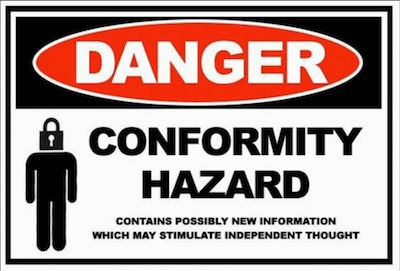Our Area of Research:
Our team is interested in how Neoliberalism has intersected with the World Wide Web to impact and reshape Canadian literature. Our primary source is Herb Wyile’s article “Neoliberalism and the Future of Canadian Literature” which can be found in the journal of Canadian Literature. Our interest in this topics is two-fold. Firstly, a country’s market economy is a driving force in what is deemed “relevant” and “important” and Canada is no exception to that. In Wyile’s article he outlines how Canadian literature is at a critical junction point (108). He argues our current literary cannon has been largely defined by our society’s Neoliberal values, but the question remains will there be a “true crisis of capitalism or merely a temporary check on its fortunes”(109). Economic speculations aside, no matter what happens there will be changes to Canadian literature because 1) it will shape what we teach and research due to the private publishing industry, 2) Canadian literature themes will reflect current political, social and economic issues, and 3) the established institutional support of Canadian literature is changing (Wyile 109).
Relevancy is a key factor in literature because people will choose to spend their time reading what they believe is most important to them. It is no secret that Canada’s economy, and by default its values and topics of interest, have changed over the past 50 years. These changes have had a major impact on literature produced. A great example of this is Margaret Atwood’s A Handmaid’s Tale, published in 1985. The tale is set in a dystopian future — an all too common concept (both in Canada and internationally) from ~1960-1990. This theme was so commonplace because the world was in the depths of the Cold War; dystopia was on the minds of nearly everyone because the future of the world was unknown and bleak, at best.
The second reason for our interest in our research topic is because the World Wide Web has become a driving force for changes in Literature. Now that we can access nearly everything online, market demands are unable to be as contained as they could be in the past. In the past, marketers and companies were able to control what consumers thought they needed and wanted; however, in many ways we, the consumer, are now able to decide what is important for us, simply because we are able to access information and products at an international level. We want to look at the intersection of the World Wide Web on the economy (and by default on Canadian Literature) because of how much the economy is impacted by internet users, both internationally and domestically. If consumers are now able to choose what is important for themselves, voices that have been silenced in the past are now able to be heard. Writers of all backgrounds are able to express themselves and find audiences who are wanting to consume what they are creating.
The democracy of the World Wide Web has allowed the un-mediated publishing of all types of literature, representing all spheres of the population and interests. But this deluge of works, subject to the open economy policies of neoliberalism, is having profound effects on Canadian literature. It has given a voice to otherwise silenced or muffled voices like those of the Aboriginal communities. It has meant that the voice of the collective Canada, tiny in comparable to most other countries, is lost amidst the more numerous voices of others, like say our neighbour to the south. Not to mention the voices of sub-sections of the country such as the Francophone or Aboriginal communities. For this project, we are interested in how a neoliberalist economy, specifically in regards to the world wide web, has changed the face of Canadian literature and what this means for its future.
“Our Digital Lives” – Ted Talk

Conference Goals:
Here are some of the questions we are hoping to answer through our research:
- Does the online world make Literature more available, if so how does this affect Canadian Literature and the stories we hear
- Does technology make Canadian literature encompass more voices, ones that were historically ignored
- Is Canadian literature more available to marginalized communities?
- how does independent publishing impact Canada’s literary cannon?
- How does an open www intersect with open economy neoliberalist policy?
- How does the www affect the ways we teach, learn, and research Literature in Canada?
- How will the increased availability of technology continue to change Canadian Literature?
- Could this make Canadian literature less distinct/ more Americanized?
Our Group:
Maryam AB
Hi everyone! I’m Maryam Baksh and I’m just completing my Bachelor of Arts in Psychology here at UBC. I’m minoring in English…which is how I ended up interested in this course and it has been an awesome experience. After several on-campus terms, I am finishing this last term from 10 time zones away! Never have I done anything like it…the technological component (Facebook, blogging) were all new to me and the interactive style was really enjoyable. I am definitely so thankful that this will be one of last courses that I take…graduating on a good note 🙂
That being said, my interests in our research topic and this course are a perfect intersection. Technology, which is shaped by neoliberalist economic policies, is obviously changing how we consume and learn about literature. This course is a key example from the way it is taught on the way we produce and interact with assignments tot he fact that I read most of the books on Kindle! I am interested in joining the other three girls in exploring how this impacts the face of Canadian literature.
 Nicole Galloway:
Nicole Galloway:
Hi Everyone! My name is Nicole Galloway and I am a fourth year Political Science and English Literature major. For the past two terms I have been working at a Co-op position with the Vancouver Symphony Orchestra while taking a few classes online to make sure I can graduate in April 2017.
I am particularly interested in this topic because I want to discover more about whose stories get told (and listened to) and whose do not in Canadian Literature. I found Edward Chamberlin’s If this is your Land Where are your Stories? On Common Ground very intriguing because he talks about how there are multiple stories each being as true as the other. This idea of multiple truths intersecting, and different stories from different cultures being given equal value is an important issue I want to explore. I think that through our research on this project we will find that the www provides a new medium to be able to hear stories that we may not have heard with traditional publishing methods. I think the internet has opened up a whole world of possibilities for marginalized groups in Canada to be able to share their stories and to make people listen.
 Julia Hofmann Hey there! My name is Julia Hofmann and I’m about to complete the 3rd year of my Bachelor of Arts in Psychology. Once I complete my undergrad, I plan on going on to complete Masters of Arts, PhD, and Post-Doctorate all in Behavioural Neuroscience, focussing primarily on areas of clinical psychological disorders (e.g., Depression, Anxiety Disorders, Schizophrenia, etc). I’m hoping to get some traveling done in the midst of all my learning (the photo to the left is me at Paddington Station in London, UK)! I took this course because I have been wanting to increase my knowledge on both Canadian social justice issues and Canadian Literature; I have learned an incredible amount about these topics and beyond! I’m looking forward to learning more about the future of Canadian Literature via our collaborative research topics. I am interested to divulge in the intersection of neoliberalism and the World Wide Web and the effects they will have on Canadian Literature in the future. I think it is incredibly important to look at external factors that have an effect on literature and while it isn’t necessarily our intuition to focus on areas like politics and the economy when worrying about the future of Canadian Literature, I think they are integral components. I’m looking forward to the feedback and discussions proceeding our investigations!
Julia Hofmann Hey there! My name is Julia Hofmann and I’m about to complete the 3rd year of my Bachelor of Arts in Psychology. Once I complete my undergrad, I plan on going on to complete Masters of Arts, PhD, and Post-Doctorate all in Behavioural Neuroscience, focussing primarily on areas of clinical psychological disorders (e.g., Depression, Anxiety Disorders, Schizophrenia, etc). I’m hoping to get some traveling done in the midst of all my learning (the photo to the left is me at Paddington Station in London, UK)! I took this course because I have been wanting to increase my knowledge on both Canadian social justice issues and Canadian Literature; I have learned an incredible amount about these topics and beyond! I’m looking forward to learning more about the future of Canadian Literature via our collaborative research topics. I am interested to divulge in the intersection of neoliberalism and the World Wide Web and the effects they will have on Canadian Literature in the future. I think it is incredibly important to look at external factors that have an effect on literature and while it isn’t necessarily our intuition to focus on areas like politics and the economy when worrying about the future of Canadian Literature, I think they are integral components. I’m looking forward to the feedback and discussions proceeding our investigations!
Courtney Lee
Hello everyone! My name is Courtney Lee and I am a 5th year Sociology student looking to graduate this year! I am currently working in recruiting so have a pretty good career path going at the moment – before that I was in sales and fundraising. I am hoping to also travel for a bit to South East Asia and Europe after I graduate as it has always been my dream to go to Greece, Thailand and Bali. I took this course because I am very interested in literature and have studied numerous courses with a focus on American literature, but never any in Canadian literature. I thought it would be best to round out my knowledge of North American literature by studying works that originated in my own backyard. I am very interested in the topic of neoliberalism, particularly in regards to how it affects Canadian literature and how this intersects with the information age. I hope you guys enjoy our research presentation! I look forward to reading and learning about the topics you chose as well.
Works Cited
Conformity. WordPress. Web. 06 Apr. 2016. <https://spykeyone.files.wordpress.com/2015/09/conformity_hazard-svg.png>.
Our Digital Lives. TED. Web. 07 Apr. 2016. <https://www.ted.com/playlists/26/our_digital_lives>.